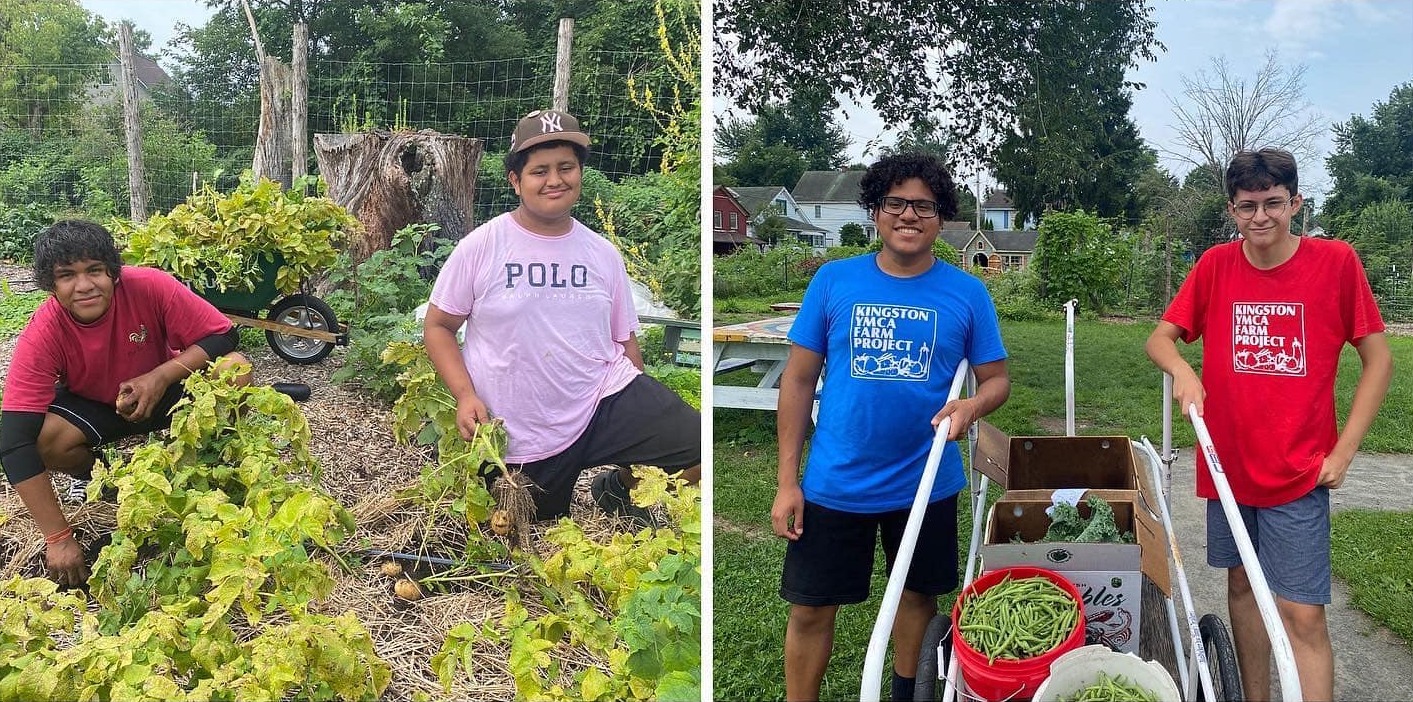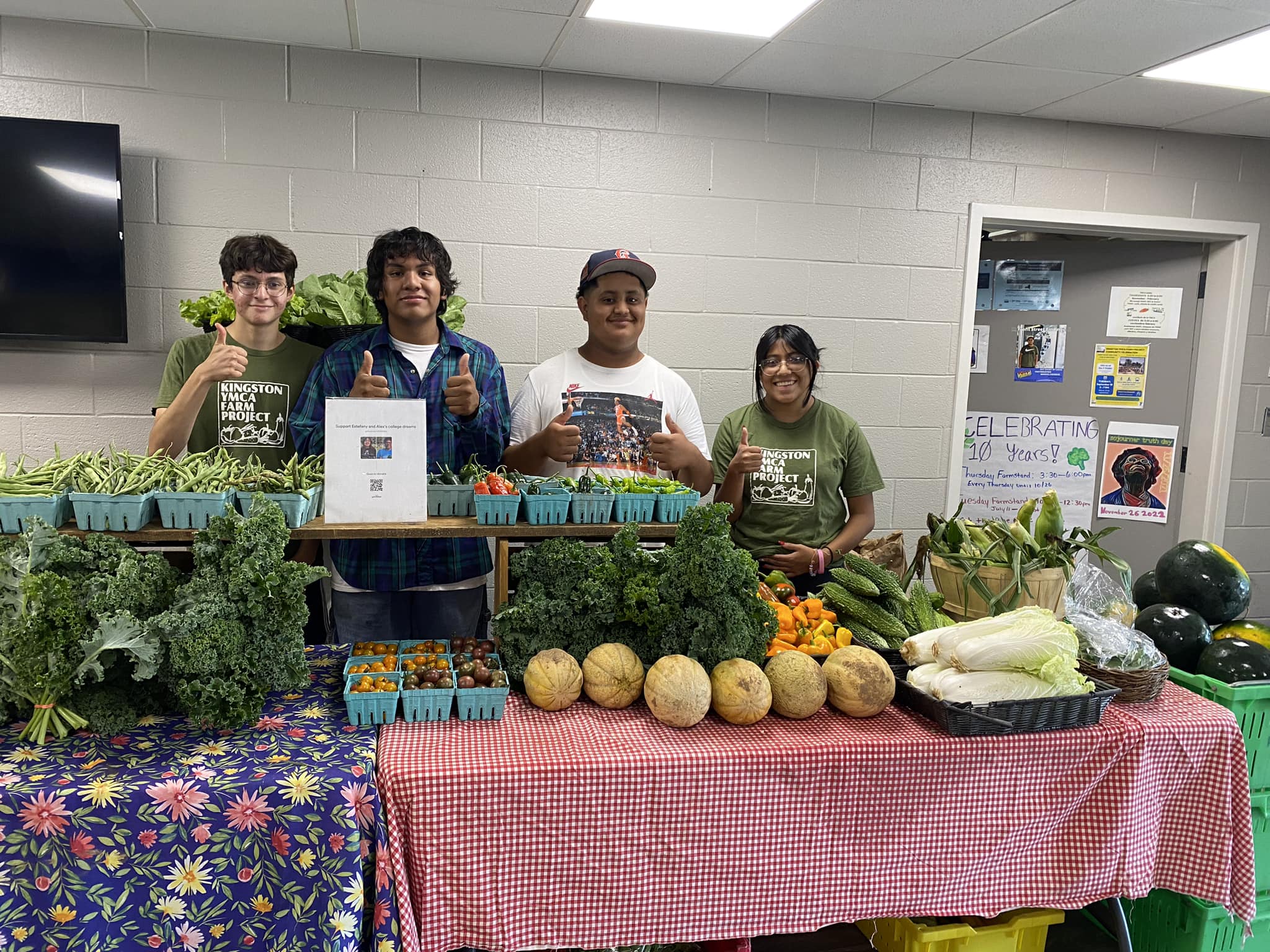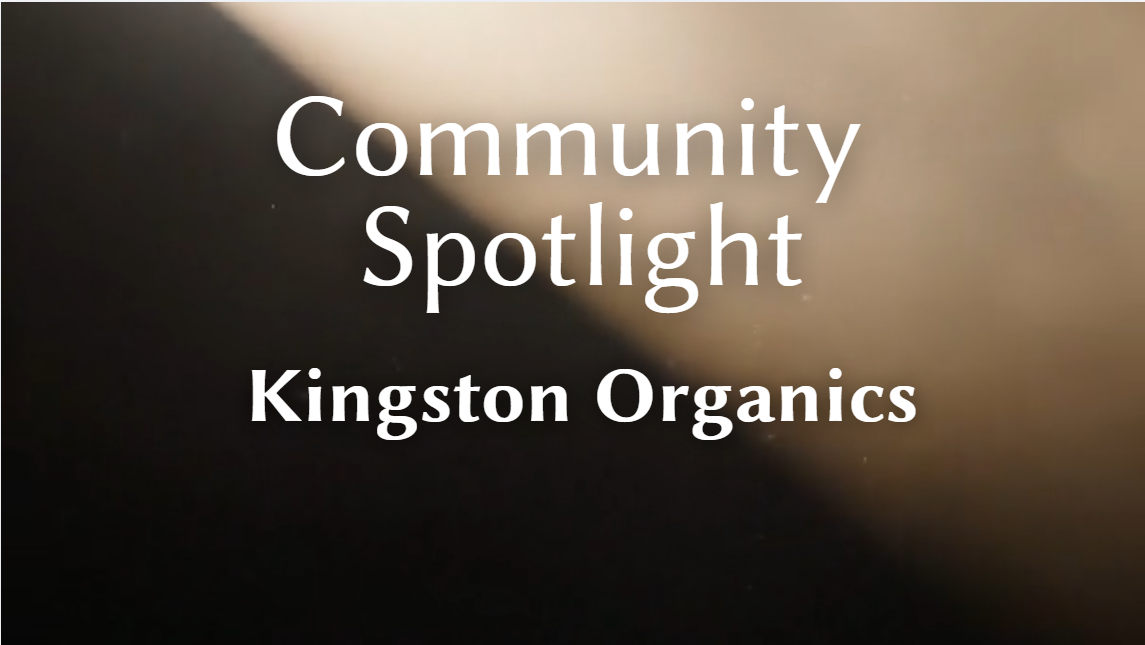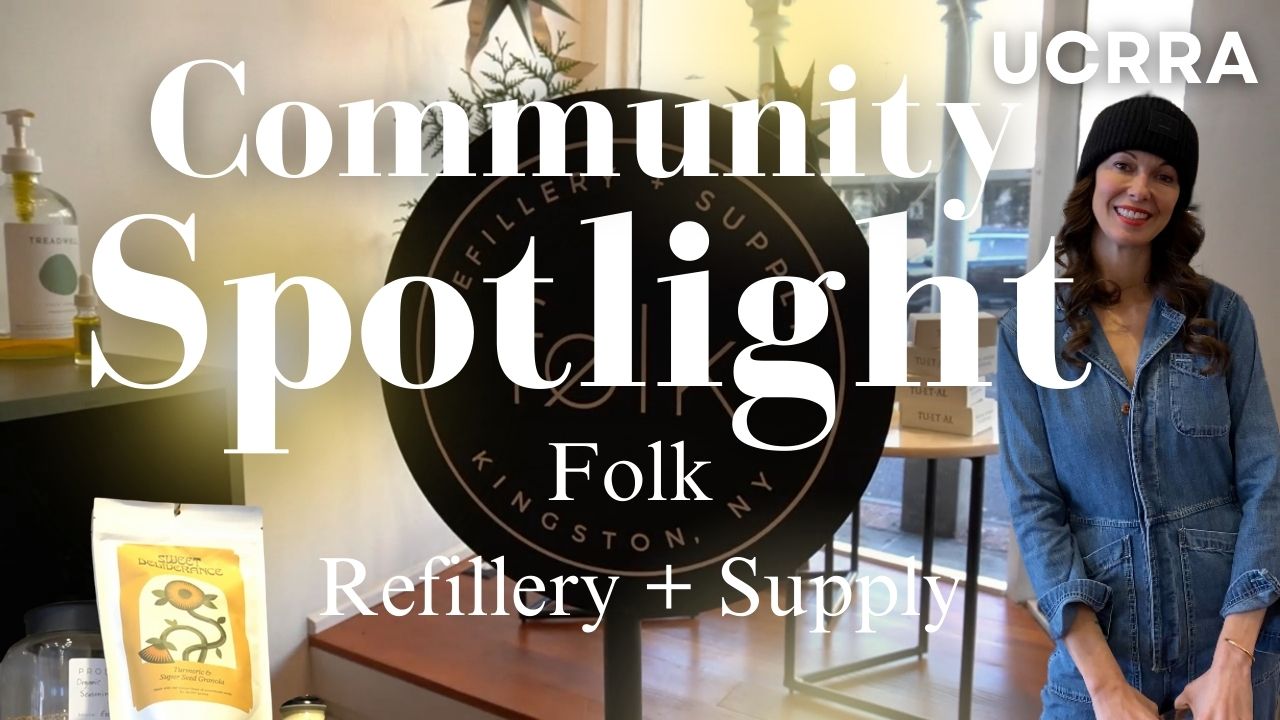
October 2024
Community Spotlight Blog by Allison McIntyre (Recycling Administration Assistant), Tanesia White (Recycling Educator)
Interviewee: KayCee Wimbish (Project Director & Farmer)
The Recycling Outreach Team’s “Community Spotlight” initiative highlights local stories about waste-sustainability. This month, Allison spoke with Kaycee Wimbish, project Director & Farmer of the YMCA Farm Project (“Y Farm”). KayCee explained the farm’s missions of education, racial, and economic justice.
The YMCA Farm Project is important to the Kingston community because it connects youth with the land and engages them in the process of food production through employment and education. To learn about the Y Farm’s compost operation watch about this initiative here.
Can you share the story behind the inception of the Kingston YMCA Farm Project and what inspired its creation?
The YMCA Farm Project owns 6 acres of land where the farm is currently located. Before the farm, this was a large grassy field that sometimes got mowed and sometimes hosted some baseball games. A community garden was starting to grow on a small portion of the land. In 2012, Lee Anne Albritton, then Childcare Director at the YMCA, was looking for someone to utilize the land to both grow more food for the community and to offer programming to the children in the Y’s programs. Through luck and good timing, we were connected and the idea of the Kingston YMCA Farm Project was launched! We knew we wanted a hand-scale farm that grew food for the community and engaged young people in the process. We [also] wanted to create a public space that was beautiful and full of life!
What are the main goals and objectives of the farm project, and how do they align with the mission of the Kingston YMCA?
We have 4 main areas of focus: community food production, community food access, farm-based education and youth empowerment through employment. We aim to grow high-quality, chemical-free fruits and vegetables that are culturally relevant to our neighbors and community members. Our farm stands are located in the lobby of the Y and are open to everyone. We accept SNAP and Farmers Market Nutrition Program (FMNP) checks and offer below market prices. We love having young people through schools and camps visit the farm on field trips. They get experiences doing real work on and around the farm. They also get the opportunity to pick and eat fruits and vegetables. The heart of what we do is our youth employment program. We employ high school students and they learn how to do every job on the farm and even run the farm stands. The mission of the Y is “for youth development, for healthy living, and for social responsibility.” The Kingston YMCA Farm Project is the perfect embodiment of these three pillars of the Y’s mission.
The Kingston YMCA Farm Project does an amazing job at youth empowerment through your various programs. For those who may not be familiar with this work, please describe the key programs or activities that the farm project offers to the community?
We offer a farm stand 9 months of the year! Our Thursday farm stand runs from June-February. We partner with the Hudson Valley Farm Hub to run our winter farm stand November-February. We have a community garden and offer plots in the garden to the community. For $30 a year you get space, soil, water, and support. We have an annual seedling sale in May. Seedlings are grown by our Youth Crew in our greenhouse and we use organic seeds and organic potting soil. We offer food scrap drop-off to anyone who can’t or doesn’t want to compost at home. [To see how the compost becomes fertilizer on the farm, watch our spotlight on Y Farm’s compost here!] Drop off can happen anytime out by our Community Garden. Please make sure you follow the guidelines of what we accept and don’t accept. We offer field trips to local elementary schools and summer camps. We engage children in hands-on, meaningful farm activities. We offer year-round employment to Kingston high school students. We donate produce and prepared meals to Kingston’s community fridges. We have a nature-scaped playground that is open to the public!

How does the farm project incorporate sustainable practices into its operations and what environmental or social benefits have you observed?
We aren’t certified organic, but we use organic growing practices. We don’t use any pesticides or chemicals on our farm or in any of our gardens. We are hand scale so we don’t use machines or tractors on the farm. Because our farm stands are located at the Y, we don’t even transport our vegetables to market. We compost on-site, dramatically reducing what goes into the landfill. We have a lot of biodiversity in our playground and in our pollinator garden. This attracts a huge amount of pollinators to our site!
Why is the YMCA Farm Project important to the Kingston Community and what’s on the horizon for the farm project?
I think it is important to have this beautiful, urban oasis in Kingston! It is a place for humans, mammals, birds and insects to find beauty, food and calm. It is very important to provide meaningful and engaging employment opportunities to young people. Our youth staff are engaged and engaging. They learn life long skills about growing food, providing customer service, cooking, nutrition and so much more. They also gain confidence and a sense of belonging and build relationships with supportive adults. Very importantly, the youth see themselves as agents of community change!
Find out more about the Y Farm’s food scrap drop off and compost initiative run by the Youth farmers here: https://ucrra.org/community-spotlight-composting-at-the-ymca-farm-project/


